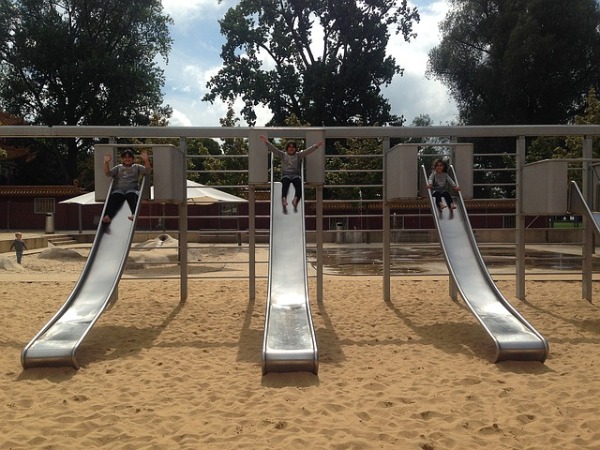The Long Summer Slide of 2020
It is known as "summer slide" - the learning loss many students experience during the summer break from school. The topic is often associated with younger students in K-12 but if you have ever taught college students or adult learners (especially in sequential courses) you have also seen it occur.
In 2020, the typical two-month recess became six months for some students because of COVID-19 class cancellations and possibly less-than-ideal attempts at online learning.
Will we see a greater slide this fall than in other years? Will a high school student whose second half of French II, Algebra, or another course be really prepared for the next course this fall? I have friends who teach in secondary schools who fully expect in the fall to have to spend the early weeks (months?) reviewing and catching students up on work before moving forward. They did this in past years, but expect a greater need for remedial instruction for fall 2020.
When students are not engaged in learning for an extended time, they slide. It would be true if they skipped a semester of took a gap year or were ill for several months. From what I have read, this is particularly true with math, science, language, reading, and any sequential course that builds on a prerequisite.
There has been a lot of research on summer loss the past century which shows young people can lose up to several months’ worth of school-year learning over the summer break, and some studies also show that older students have greater gaps. It is particularly concerning that summer loss seems to be greatest for low-income students for a number of reasons.
There are those who question the whole idea of summer slide, but in my 45 years in classrooms (secondary, undergraduate, and graduate levels) I have seen that loss when students returned in September, even in their work and study habits.
What is the solution? The standard answer is to keep students engaged in reading and educational activities. But every parent will tell you when school ends motivating students to do things that closely resemble schoolwork is very difficult. Plus, this year many parents were doing more schoolwork support the past few months than ever before and also want a break.
College students might be wise to use some free MOOC offerings to supplement courses from this past semester or to prepare for fall. But again, after a semester fully online, more online learning may not be very appealing.

Trackbacks
Trackback specific URI for this entryThe author does not allow comments to this entry
Comments
No comments